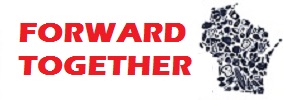2017 Summit

The 2017 Hunger and Health Summit: Forward Together was held on May 9 and 10 at Hotel Mead in Wisconsin Rapids.
With uncertainty regarding the Affordable Care Act and potential changes to important nutrition programs like FoodShare, our work together in hunger and health – and our ability to magnify our work in local communities to the state and national scale – is now more important than ever. This context dictated our theme for 2017, "Forward Together."
Nearly 200 people attended the day and a half event that featured three general sessions and 65 local, state, and national leaders who presented in twenty track sessions.
Download a full list of speakers and bios
Opening General Session, May 9
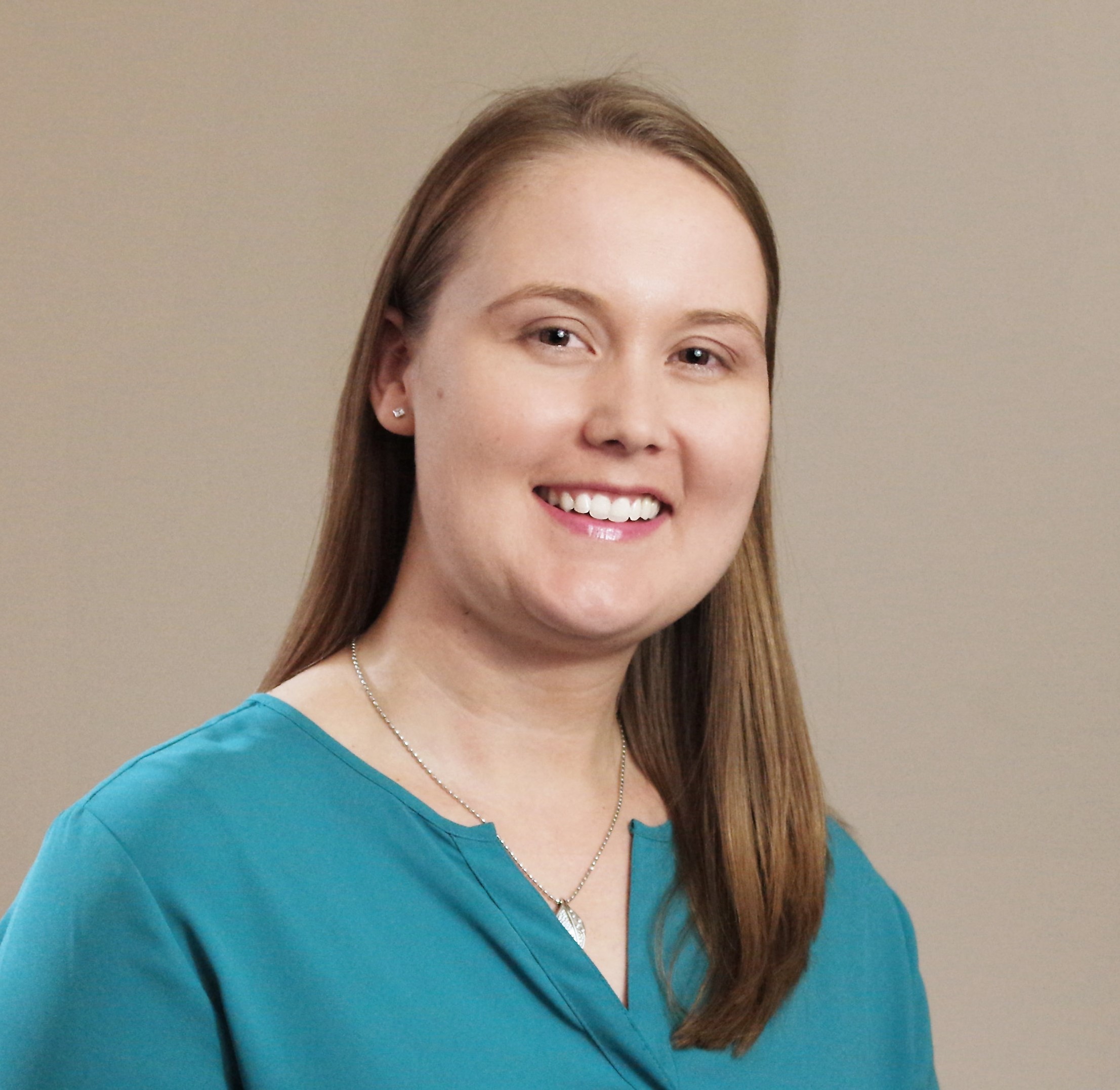 Too Distressed to Learn: Hunger and Mental Health in Higher Education
Too Distressed to Learn: Hunger and Mental Health in Higher Education
Katharine Broton, Wisconsin HOPE Lab
Recent research indicates that college students are particularly vulnerable to food insecurity, with one- to two-thirds of students reporting limited or uncertain availability of nutritionally adequate and safe foods due to resource limitations. In this presentation, Ms. Broton shared the latest research from the Wisconsin HOPE Lab on college students who struggle to get enough to eat and discussed relationships with mental health challenges. As mental illness and food insecurity can impair academic success and quality of life, implications for policy and practice were also discussed.
May 9 Track Sessions and Presentation Decks
Session Block 1
Healthy Food Systems Convergence: A Community Conversation on Healthy Food Access
Track: Policy & Research
The Wisconsin Food System Convergence session at the 2017 Hunger & Health Summit will give attendees an opportunity to share their voice on how to create a sustainable, good food movement that makes healthy food accessible for all. This convergence will build on all the great work that has been done in the past, and through a modified process of Appreciative Inquiry, will seek to chart a coordinated path forward. This session will be a facilitated Community Conversation led by the Wisconsin Partnership to move stakeholders forward together toward a healthy food system. Join us to share your input on how to more effectively work together to build a food system that makes it easy to grow, sell, access, and eat healthy food for all people in Wisconsin.
- Robert Kellerman, Executive Director, Greater Wisconsin Agency on Aging Resources
- Lisa Olson, MSW, Director of Policy and Programs, Wisconsin Primary Health Care Association
- John Wedge, Executive Director, Wisconsin Education Association Council Region 6
How to say "NO" and get to "YES!" Moving towards a healthier food pantry
Track: Healthy Emergency Food System
This workshop will build upon last year’s Safe and Healthy Food Pantry Project presentation. We will delve more into the strategies that can be useful for your pantry as you move towards more healthy practices. As food pantries are often dependent on private food donors, it can be difficult to imagine how to say no to unhealthy, unsafe or undesirable foods in a way that doesn't jeopardize relationships. We will share strategies which will help your stakeholders and see how saying NO to unwanted foods can help you saying YES to move towards a healthier food pantry. Specifically, we will cover strategies on how to get the donations you want, policy development, and getting buy-in from your donors, staff, and volunteers.
- Sheila De Forest, FoodWise Nutrition Administrator, Rock County, UW-Extension
- Kathy Splett, University of Wisconsin-Extension
- Jennifer Park-Mroch, Special Projects Coordinator and Evaluation Specialist, FoodWIse, Family Living Programs, UW-Extension
Improving School Lunch through Farm-to-School Programs
Track: Healthy Partnerships
In this session, learn about Wisconsin resources and current initiatives that support these goals at schools and other institutions. Like the USDA-funded Federal State Market Improvement Program Grant project at DATCP focused on overcoming supply chain barriers in both processing and distribution to create new, Wisconsin-identified yogurt, potato, applesauce, carrot and broccoli products appropriate and accessible to institutional markets. Or the inclusion of farm to school language in the policies that govern schools and early childhood sites. Come join the farm to school movement. Our communities depend on it.
- Vanessa Herald, Farm to Institution Outreach Specialist, UW Center for Integrated Agricultural Systems
- Marlie Wilson, Farm to School Program Manager, Wisconsin Department of Agriculture, Trade, & Consumer Protection
SNAP Myths, Facts & Trends
Track: FoodShare
Join Alan Shannon, Director of Public Affairs for the Midwest Region at USDA's Food and Nutrition Service, for an overview and discussion on the myths and facts regarding SNAP (FoodShare in Wisconsin), the connection between SNAP and the local agricultural economy and the Midwest Regional Office's work with healthcare partners.
- Alan Shannon, Director, Public Affairs, USDA Food and Nutrition Service, Midwest Region
Session Block 2
Leveraging Food System Change for Community Health Outcomes
Track: Policy and Research
For the past year, Feeding America Eastern Wisconsin and the Medical College of Wisconsin have partnered to identify how developing localized food systems can lead to positive health outcomes. By defragmenting the food system and increasing local food options, we are striving to impact community health and the health of those facing hunger. Increasing community food security and improving offerings for disparate groups requires increased food access through market-based solutions, fostering an equitable food system, and a focus on economic development. Food Banks work with underserved populations and have existing food-related infrastructure and may represent an ideal setting to support community Food Hubs that can repair the fragmented food system.
- Alex Tyink, Director of Programs, Feeding America Eastern Wisconsin
More than a Food Drive
Track: Healthy Emergency Food System
Healthy Shelves is an initiative to provide healthier foods on the shelves of local food pantries. A collaborative effort to assess and improve the quality of foods distributed to clients of two large food pantries evolved into a website that provides resources to anyone who shares that objective. Primary partners include Mount Mary University Dietetics Programs, the Waukesha UW-Extension FoodWIse Program, and the National Kidney Foundation of WI. During this session, participants will: Learn how Healthy Shelves partner organizations have aligned along a common thread of interest, launching an initiative that weaves into each organization’s work; Recognize the value of seizing opportunities to collaborate with community partners and the benefits of pooling of limited resources (e.g. time, human, monetary) to accomplish common goals; and Explore complexities of collaborative work and brainstorm solutions to overcome hurdles in the process of creating healthier food environments for food pantry clients.
- Lisa Stark, Director, Dietetic Internship, Mount Mary University
- Cindy Huber, Chief Executive Officer, National Kidney Foundation of Wisconsin
- Jill Herz, FoodWIse Nutrition Education Coordinator, UW-Extension
Engaging Patients to Address Food Insecurity: Partnerships between Food Banks and Health Clinics
Track: Healthy Partnerships
Food banks and health clinics across the region are working together to screen for food insecurity and provide appropriate resources to help address the immediate and long-term needs of patients. Learn about the successes and challenges that these partnerships have faced, the results of the projects, and most importantly, how your community might also be able to work with health clinics to help patients gain access to community resources.
- Kristen Williamson, Registered Dietitian and FAST Program Coordinator, Second Harvest Heartland
- Manuel Ravelo, Project Coordinator, Second Harvest Heartland
- Anne Gargano Ahmed, HungerCare Coalition Coordinator, Second Harvest Foodbank of Southern Wisconsin
- Nancy Coffey, FoodWise Coordinator, UW-Extension
- Alison Craig, MD, Chief of Staff and General Pediatrician, Group Health Cooperative of South Central Wisconsin
Simplifying Access to Free School Meals for Eligible Children: Wisconsin’s Direct Certification Program
Track: FoodShare
Direct Certification is the federally‐mandated process by which children who are already participating in certain public programs like FoodShare can be deemed eligible for free meals under the USDA’s National School Lunch Program. It is a wholly administrative process relying on linking already available data, thereby alleviating paperwork on the part of both parents and school staff. Join this session to learn about Direct Certification and which children are impacted, the challenges schools and state agencies face in carrying out the process, the numerous methods we have implemented to address those challenges, and the impact of our efforts on both school staff and overall certification rates. We will also touch on what changes are in store for the year ahead including more involvement with tribal populations and other public programs.
- Helena Gilbertson, Direct Certification Outreach Specialist, Covering Wisconsin, UW-Madison
- Allison Espeseth, Operations and Development Manager, Covering Wisconsin, UW-Madison
Breakfast General Session, May 10
What is “Healthy?”: Deepening Our Understanding in order to Improve Health and Strengthen Communities through Food and Policy
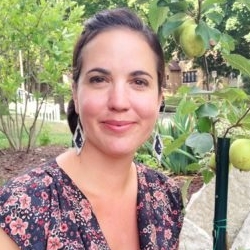
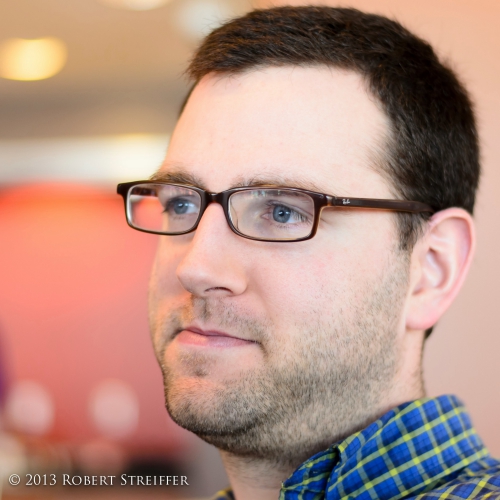
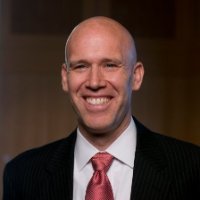

Our second conference day kicked off with a panel discussion focused on deepening our understanding of "health and nutrition," in its broadest sense, as it relates to people, communities, and policy.
In a wide-ranging discussion moderated by David Lee, Feeding Wisconsin's executive director, our panelists - Jennifer Casey, Executive Director of Fondy Food Center, Paul Kelleher, Associate Professor of Bioethics & Philosophy at UW-Madison, and Robert Zeaske, CEO of Second Harvest Heartland - shared perspectives from their diverse personal and professional backgrounds that helped chart an inclusive path forward together toward improving our efforts to improve health and fight hunger.
Keynote Address, May 10
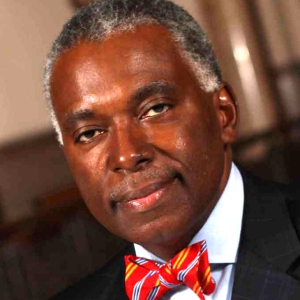 Addressing Public Health, Nutrition and Food Access in Wisconsin's Largest and Most Diverse City
Addressing Public Health, Nutrition and Food Access in Wisconsin's Largest and Most Diverse City
Milwaukee City Health Commissioner Bevan Baker delivered a rousing keynote address about the nutrition, public health, and hunger, including sharing a bit of his own story which extended from the rural parts of North Carolina to the most remote parts of Africa.
May 10 Track Sessions and Presentation Decks
Session Block 3
Wisconsin Budget For All
Track: Policy & Research
A year of deep messaging work in Wisconsin revealed that a paradigm shift was needed to overcome public attitudes about spending, taxation, and the core functions of government. The research suggested that such a paradigm shift was possible through disciplined and focused communication that highlighted revenue attained by addressing flaws in the tax code that benefit special interests and reinvesting that recovered revenue into projects that promote the common good, which results in thriving communities. The key insight was to inspire people by keeping the focus on building thriving communities -- an idea that is broadly resonant -- rather than focusing on the specifics of policy. We hope you will join us in incorporating this work into your organization’s communications to amplify this message and help us shift the conversation surrounding our public institutions.
- Ken Taylor, Executive Director, Wisconsin Council on Children and Families
- Robert Kraig, Executive Director, Citizen Action of Wisconsin
Best Practices for a Best in Class Food Pantry
Track: Healthy Emergency Food System
It takes a lot to run an effective food pantry. This session focuses the three core components of a food pantry: Volunteers & Mission, Operations & Maximizing Distribution, and Nutritional Education Programming. The session will provide a unique and tangible best practices to help elevate your hunger-relief organization and improve overall organization efficiencies. Learn from industry experts how to clarify your mission statement, empower your volunteers to increase efficiency, seek out opportunities within local organizations to increase program capacity and impact and how to increase nutritional programming to customers to address food insecurity from multiple perspectives. You will walk away with greater confidence, inspiration, and tools to become a best-in-class food pantry.
- Erin Waldhart, Executive Director, WAFER Food Pantry
- Liz Seefeldt, Executive Director, The BRICK Ministries
- Dan Wilson, Program Director, Second Harvest Northern Lakes Food Bank
- Catherine Draeger-Pederson, Executive Director, Friedens Community Ministries, Inc.
Community Linkages: Wood County's Approach to Solving Hunger
Track: Healthy Partnerships
Learn about how our Summit's host county is bringing together their community to create local hunger solutions - from first identifying the community needs through the Wood County Health Assessment to developing and implementing solutions with local WIC clinics, public health, and other community stakeholders.
- Kristie Rauter-Egge, Community Healthy Planner, Wood County Health Department
- Amber France, MS, MPH, IBCLC, WIC Director and Lactation Supervisor, Wood County Health Department
The Future of FoodShare and BadgerCare
Track: FoodShare
FoodShare is the largest hunger fighting program in Wisconsin and BadgerCare is the largest healthcare program in Wisconsin. With the tough choices that many Wisconsin families face every day, these important programs provide some assistance to ensure that everybody has access to the food and healthcare they need to work toward a better future. Yet, the future of these programs is uncertain and unclear. With a Farm Bill on the horizon in 2018 and Healthcare Reform seemingly around the corner, what does the future hold for these vital programs. Join this session with two experts on the issue to find out!
- Nick Levendofsky, Government Relations Associate, Wisconsin Farmers Union
- Jon Peacock, Research Director, Wisconsin Council on Children & Families
Download The Future of FoodShare Presentation
Download The Future of BadgerCare Presentation
Session Block 4
Improving Food Access through Local Policy Initiatives: A Rural and Urban Case Study
Track: Policy & Research
This session will share an overview of perspectives, one urban and one rural, on the use of food policy councils to understand community needs and implement projects to improve access to healthy, affordable and culturally-appropriate food. The City of Madison and Dane County will provide an overview of two nutrition incentive programs: a pilot Fruit and Vegetable prescription program and the “Double Dollars” program. Shawano County UWEX will share the work of the FRESH Project Food Council who have developed a strategic plan after doing a community needs assessment to address food access and insecurity within the county. Attendees will gain a better understanding of the role of food policy councils in creating community change, ideas for collaboration and innovative approaches that may be replicable in their local communities.
- Nick Heckman, Food Security Policy Analyst, Public Health Madison & Dane County
- George Reistad, Food Policy Director, City of Madison
- Nancy Schultz, FLE, UW-Extension
- Kara Skarlupka, Staff, UW-Extension
Download Dane County Presentation
Download Shawano County Presentation
Measuring the Health of the Food We Distribute with the Food Assessment Scoring Tool (FAST)
Track: Healthy Emergency Food System
Traditionally, quantity (lbs.) of food distributed has been the driving measure of success in hunger relief. With increased awareness of health and hunger, along with a general increase in the demand for healthier foods by clients, there is a need to develop tools to measure the nutritional value of the food distributed by food banks and pantries to help them make informed sourcing decisions. The Feeding America Foods to Encourage measure has provided a helpful first step to doing this. Building on this work, the Food Assessment Scoring Tool (FAST) has been developed to provide increased specificity in measurement through a collaborative partnership between Second Harvest Heartland and the University of Minnesota, with financial support from Target, Inc. FAST enables food banks and their agency partners to measure the nutritional quality of foods sourced and distributed at any one point in time, as well as measure change over time.
- Kristen Williamson, Registered Dietitian and FAST Program Coordinator, Second Harvest Heartland
- Kate Burggraff, Program Innovation & Impact Manager, Second Harvest Heartland
Community Resource Navigation Partnership: An Innovative Approach to Addressing Food Insecurity
Track: Healthy Partnerships
Overwhelming evidence demonstrates the impact that socioeconomic factors have on health, leading to deep inequities in health outcomes. While health care clinics routinely screen patients for health related factors, like blood pressure and cholesterol, clinics are looking for effective and cost-efficient ways to screen their patients for social determinants of health. Join this session to learn how The Community Resource Navigation Partnership (CRNP) brings the University together with community and primary health to screen patients for screening patients for thirteen health¬ harming social conditions, partner with patients to identify the most pressing needs, and assist patients in connecting to resources.
- Lane Hanson, Community Engagement Coordinator, Center for Patient Partnerships
Increasing Food Access through EBT at Farmers Markets
Track: FoodShare
This presentation will highlight the work that the University of Wisconsin – Extension and Farmers’ Markets across the state are doing to promote the use of EBT at farmers’ markets. It will touch on the work of two grants, the state-wide Farmers’ Market Promotion Program and Fondy Food Center’s Healthier Wisconsin Partnership Program in Milwaukee to provide information about the barriers that households, as well as farmers markets, face, outreach strategies to increase use of SNAP at farmers’ markets, and pilot programs to increase access to fresh and local produce. In addition to coming away with tools and resources to apply in their communities, participants will be engaged in sharing their experiences in promoting EBT at farmers’ markets to expand the collective wisdom of session attendees.
- Amber Canto, FoodWIse State Program Coordinator, UW-Extension
- Jennifer Casey, Executive Director, Fondy Food Center
- Karen Early, FoodWIse Nutrition Coordinator, UW-Extension
- Francie Dekker, FoodWIse Nutrition Program Administrator, University of WI-Extension
Session Block 5
Wisconsin Blueprint to End Hunger
Track: Policy & Research
In 2008, just as the Great Recession was beginning to unfold, the Wisconsin Food Security Consortium released the Wisconsin Blueprint to End Hunger. The plan consisted of four table legs: 1) family economic security, 2) access to affordable and healthy food, 3) federal nutrition programs, and 4) emergency food assistance. Now, as we approach the document's 10 year anniversary, we are working to update the blueprint and relaunch a statewide effort put the recommendations of the plan into action. Join this session to learn about the new Blueprint and how you can join this important effort.
- Nick Heckman, Food Security Policy Analyst, Public Health Madison & Dane County
- Amber Canto, FoodWIse State Program Coordinator, UW-Extension
Faithful Citizenship
Track: Healthy Emergency Food System
There is a growing consensus across the political spectrum that government has an important role to play if we are to take effective action to dramatically reduce poverty. Both progressives and conservatives accept that government is essential to creating a social and economic context where poverty is far less prevalent. Despite this seeming agreement, ideological divisions over policy create a standoff that blocks effective action. Join this session to learn how your food pantry or community organization can join thousands of other people of faith in local communities throughout our state to drive meaningful, accountable action toward the achievable goal of cutting child poverty in half in a decade.
- Ken Taylor, Executive Director, Wisconsin Council on Children and Families
- Peter Bakken, Public Policy Coordinator, Wisconsin Council on Churches
Infant Health and Food Insecurity: Creating a Community of Healthy Breastfeeding
Track: Healthy Partnerships
This session will explore community-based approaches to creating breastfeeding friendly policies and spaces. We will discuss our work with a community health and nutrition focused coalition and implementing breastfeeding friendly areas in county-owned spaces such as the Courthouse, Health Care Center, and even the Fairgrounds. We will discuss working with area employers on their breastfeeding-friendly policies and accommodations. Strategies to overcome barriers to breastfeeding and creating breastfeeding-friendly spaces and policies will also be addressed.
- Nancy Vance, Family Living Educator, Clark County, UW-Extension
- Melissa Kono, Community Resource Development Educator, Clark County, UW-Extension
Rural FoodShare Outreach and Best Practices
Room: Track: FoodShare
FoodShare is one of Wisconsin's most effective anti-hunger fighting tool. Unfortunately, many people across the state are unaware that they might be eligible for the benefit. Food banks across the state help raise awareness and provide application assistance in both urban and rural settings. Dr. Lori Bakken shares her research on the feasibility of FoodShare Outreach in rural Wisconsin and discusses the challenges and opportunities for outreach programs in these communities. Learn how rural communities across the state can partner with other agencies to help people gain access the program and help end food insecurity through the FoodShare program.
- Lori Bakken, Evaluation Specialist, UW-Extension
- Liz Seefeldt, Executive Director, The BRICK Ministries
- Brian Larson, FoodShare Outreach Specialist, Second Harvest Foodbank of Southern Wisconsin



